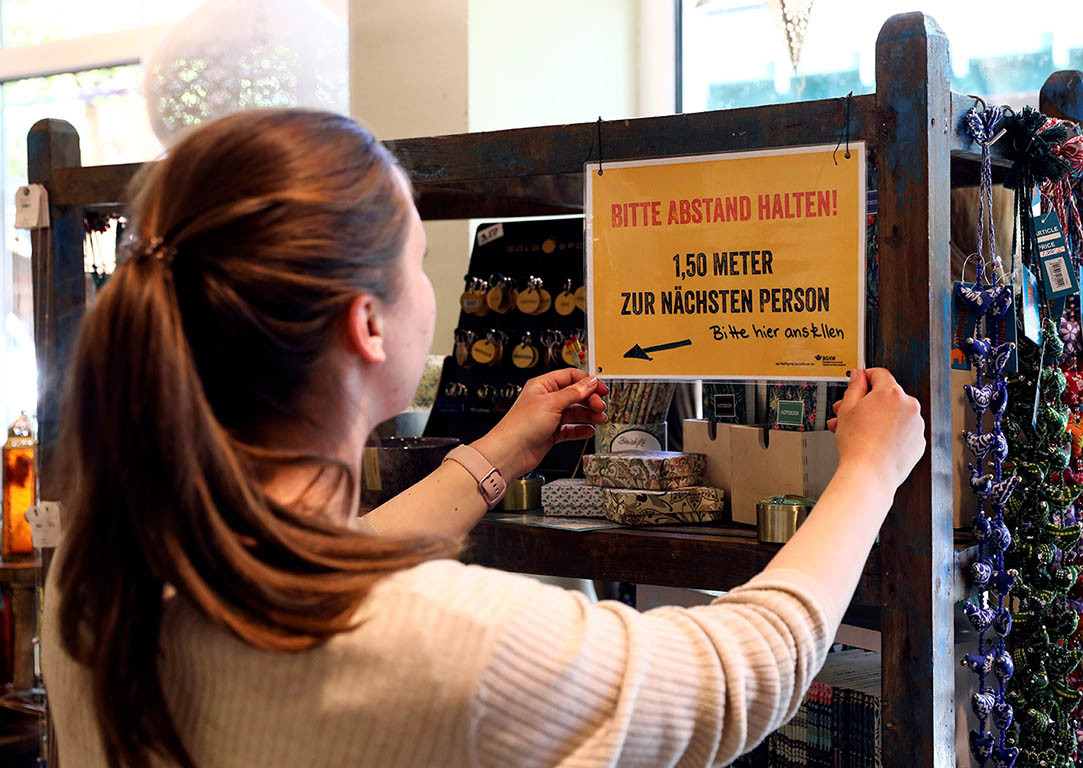Popular Reads
Top Results
Can't find what you're looking for?
View all search resultsPopular Reads
Top Results
Can't find what you're looking for?
View all search resultsSlump in consumption, exports push Germany into recession in Q1
The Federal Statistics Office said capital investments fell by 6.9 percent, private consumption by 3.2 percent and exports by 3.1 percent between January and March compared with the last three months of 2019.
Change text size
Gift Premium Articles
to Anyone
A
slump in capital investments, private consumption and exports pushed the German economy into a recession in the first quarter, detailed data showed on Monday, giving a glimpse of the damage caused by the coronavirus pandemic.
The Federal Statistics Office said capital investments fell by 6.9 percent, private consumption by 3.2 percent and exports by 3.1 percent between January and March compared with the last three months of 2019.
This meant that private consumption took off 1.7 percentage points of overall economic activity and net trade shaved off 0.8 percentage points, translating into a first-quarter contraction of 2.2 percent, the steepest rate since 2009.
The data showed that investments in the construction sector, which accounts for almost 10 percent of overall national output and is Germany's largest employer, rose by 4.1 percent, contributing 0.4 percentage points to quarterly growth.
State spending was the other bright spot in the otherwise grim data and together with construction it prevented a deeper contraction. Government expenditure rose by 0.2 percent on the quarter, the data showed.
The 2.2 percent drop in quarter-on-quarter output was the widest since the financial crisis of a decade ago and the second biggest since German reunification in 1990. It followed a 0.1 percent contraction in the last three month of 2019.
Economists expect a bigger fall in output in the second quarter as the bulk of curbs introduced in mid-March to fight the outbreak become more apparent.
"As the first quarter performance is the result of ‘only’ two weeks of lockdown and supply chain disruptions due to lockdown measures in Asia, it does not need much analytical skill to predict a much stronger slump in the second quarter," said Carsten Brzeski, chief euro zone economist at ING.
"Three more weeks of lockdown and a very gradual lifting of some measures do not bode well for the second quarter."










